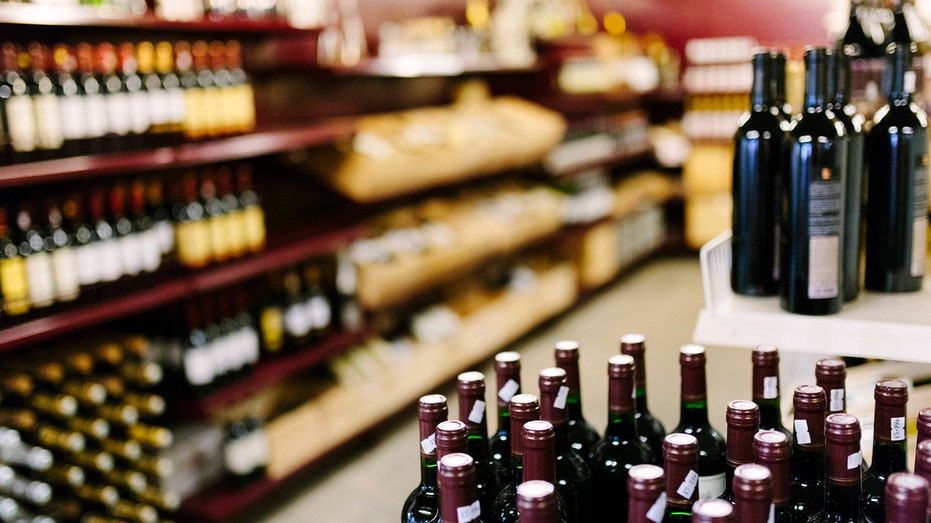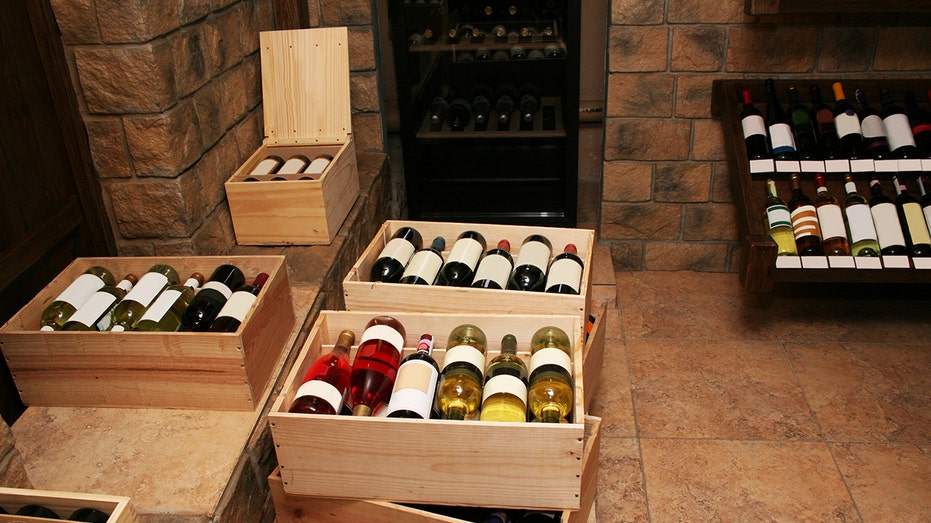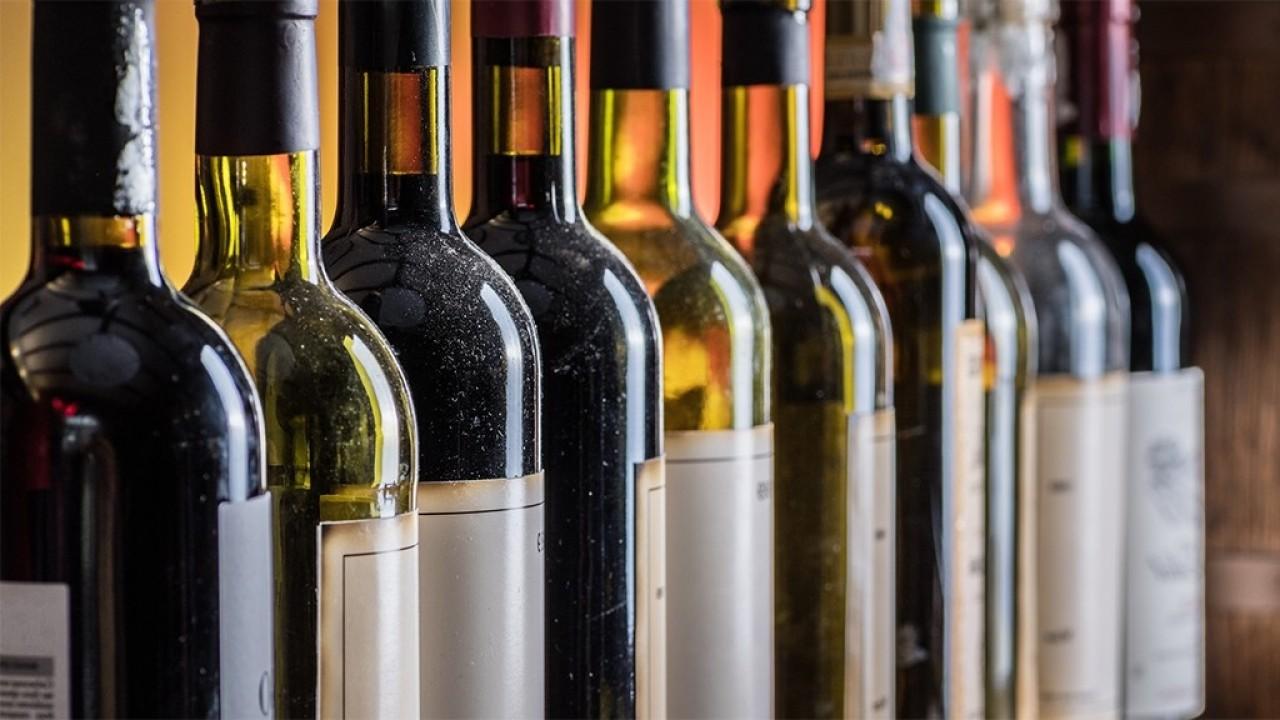Battered US wine importers brace for higher tariffs
For US wine importers and retailers, mitigating the tariffs is a challenge because of a thicket of rules and regulations that can leave few options on how to respond
Harry Root's business distributing imported wine from Europe was already reeling from a sales slump brought on by coronavirus lockdowns when he was hit with another gut-punch: a $25,000 tariff on a shipment of rose, "fun whites" and beaujolais wines at the Port of Charleston.

The alcoholic drinks section in a small local supermarket, Miller's Farm Shop, Musbury, Devon.
"We had gone two weeks with effectively zero revenue, yet still had to figure out how to make payroll and make that container payment as well," said Mr. Root, whose business is also based in Charleston, S.C. "It really brought back into focus to us, just how honestly cruel and inefficient these tariffs are."
More pain may be in store for European wine importers.
The U.S. Trade Representative's office, which imposed 25 percent tariffs on wine, cheeses, olives and other products from the European Union in October, is now considering raising levies to 100 percent, citing a lack of progress in negotiating a settlement and eliminating subsidies for Airbus SE.
PROPOSED TARIFFS ON FRENCH GOODS COULD BOOST US WINE SALES
In a public filing, the USTR said it could raise the tariffs on or about Aug. 12, and that it anticipated opening a comment process in late June.
Importers, restaurateurs and others who buy European wines say higher tariffs would devastate an industry floored by months of lockdowns.
"My hope is this next review process will bring to light how damaging these tariffs are right now to an industry that's desperate to recover," Mr. Root said.
WHY AMERICANS STILL PAY MORE FOR IMPORTED WHISKY, SCOTCH AND FRENCH WINE
The tariffs were imposed in response for trade practices in an entirely different industry -- aviation.
After a long-running dispute, the World Trade Organization ruled last year that the EU had given improper subsidies to the aircraft manufacturer Airbus, a rival to Boeing Co. The WTO ruling allowed the U.S. to impose as much as $7.5 billion in tariffs, but didn't restrict the products on which the U.S. can impose the tariffs.
FRANCE THREATENS 'STRONG' RESPONSE TO TRUMP'S TAX ON ITS CHEESE, WINES
As is typical when countries impose tariffs, the USTR hit Europeans on culturally significant exports -- slapping the 25 percent tariffs on the food products and just 10 percent on aircraft. The U.S. later raised the airplane tariff to 15 percent, despite opposition by U.S. airlines.
For U.S. wine importers and retailers, mitigating the tariffs is a challenge because of a thicket of rules and regulations that can leave few options on how to respond.
Take Eric Faber, the chief executive of Cutting Edge Selections, a Cincinnati, Ohio-based wine distributor. Ohio laws require a markup of at least 25 percent between wholesaler and retailer and an additional 33 percent between retailer and customer. That means he can't absorb the increased cost from the tariff.
"We saw a slowdown in sales for virtually every item that took a price increase," said Mr. Faber. Even before the pandemic hit, Mr. Faber estimates he lost between 8 percent and 13 percent of his sales.
During the pandemic, Mr. Faber took a loan from the Payroll Protection Program so that he wouldn't have to lay off workers. But the salesmen in his business work on commission and the sales environment is difficult.
"There's absolutely no reason to drag in small businesses, particularly in the United States, because of a dispute between two of the largest aircraft companies in the world," Mr. Faber said.

White House is considering raising levies on European wines to 100% from 25% over an aviation trade dispute. (iStock).
IWSR, a firm that tracks global alcohol sales, estimates alcohol consumption in 2020 will plunge by more than 10 percent, as any upticks from e-commerce or grocery sales during the pandemic are more than offset by a catastrophic collapse for the industry at bars and restaurants.
As of June 17, American businesses have paid $524 million in tariffs that the U.S. imposed as part of the Airbus-Boeing dispute, according to data from U.S. Customs and Border Protection.
The wine industry has mounted a vigorous opposition. In January, the last time the USTR considered raising the wine tariffs as high as 100 percent, and expanding it to other countries, about 26,000 individuals and companies wrote in, overwhelmingly opposed to the tariffs. The USTR was so inundated that it filed for an emergency review that would allow it to create a new online portal to handle the opposition to the tariffs.
The USTR kept the tariffs at 25 percent, rather than raising them to 100 percent But on Wednesday, the USTR again filed paperwork that would allow tariffs to be raised to 100 percent, sparking a new round of anxiety in the industry.
U.S. Trade Representative Robert Lighthizer defended the tariffs at a Congressional hearing June 17.
"We lost a lot of jobs because Europe was subsidizing Airbus," Mr. Lighthizer said. "We will continue those tariffs in place until we resolve that issue."
Officials with the EU trade mission in Washington didn't return a call for comment. The EU trade commissioner has said that the U.S. has stepped back from settlement talks. Both sides are awaiting a ruling in a companion case at the WTO, expected later this year, which would allow the EU to impose tariffs on the U.S. because of its subsidies to Boeing.
In Charleston, Patrick Panella owns and operates three restaurants -- a French restaurant, Chez Nous, a Spanish restaurant, Malagon, and a wine bar called Bin 152.
"In my Spanish restaurant, there's a 100 percent Spanish list. What else would I sell?" said Mr. Panella. Ditto the French restaurant. When the tariffs first hit in the fall, Mr. Panella was able to focus on inventory that had arrived pre-tariff. But the cellars are starting to run out, and as Mr. Panella works to keep his restaurants afloat, the wine list is getting more and more expensive.
JIM BEAM TO BRING BACK 'OLD TUB' BOURBON FOR LIMITED TIME
"I'm starting to see some dramatic increases at a time I can't handle that," Mr. Panella said. "Year-to-date, my profit is down 95 percent. I'm not getting paid. Gross revenue is down 50 percent. We're operating at half capacity in all the restaurants."
During April, Mr. Panella shut down his restaurants entirely while staff could receive expanded unemployment insurance and stimulus checks. In May he began to reopen, and has brought back all of his employees. But sales are weak, tips are down, and the tariffs are eating into the margins on wine that help support the viability of the entire business.
TARIFFS HIT AMERICAN WHISKEY PRODUCERS HARD IN EUROPE
"They really need to pause the tariffs until the economy rebounds," he said.
Between February and April, over six million people who work in food service and drinking establishments lost their jobs. Only 1.4 million came back to work in May, according to Labor Department data. From February to April, restaurants lost $27 billion in monthly sales, a decline of about 50 percent, according to separate reports from the Commerce Department.
WINE INDUSTRY BRACES FOR POSSIBLE 100-PERCENT TARIFF: REPORT
Ben Aneff, the president of the U.S. Wine Trade Alliance and the owner of Tribeca Wine Merchants in Manhattan, noted that the business model of many restaurants hinges on wine sales.
CLICK HERE TO READ MORE ON FOX BUSINESS
"You're doing huge damage to a key profit center on businesses straight as they try to get up off the mat," he said.




















